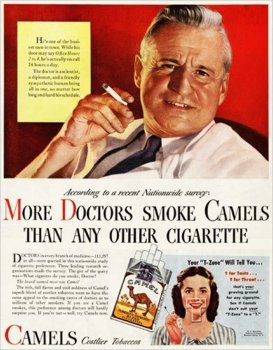R.J. Reynolds Sends 119-Page Submission to FDA Advising Ban on All “Open” Vapor Products

by Klaus Kneale
September 8, 2014
source: http://www.ecigadvanced.com/blog/r-...-fda-advising-ban-on-all-open-vapor-products/
 Reynolds American just fired quite a shot against all things mod and vapor. In a 119-page submission to the Food and Drug Administration, the company advises that all open vapor products be banned. This would include all mods, tanks, refillable cartridges, e-liquid, and basically anything that isn’t a closed disposable unit.
Reynolds American just fired quite a shot against all things mod and vapor. In a 119-page submission to the Food and Drug Administration, the company advises that all open vapor products be banned. This would include all mods, tanks, refillable cartridges, e-liquid, and basically anything that isn’t a closed disposable unit.
The submission argues extensively that open vapor products — those which allow the user to control and modify their experience — should be banned in all forms. They even go so far as to argue that stagnating sales of cigalikes prove open models are hurting the industry. The submission also argues that, among other things, open systems allow for use of illegal drugs, pose high risk for user error, and higher risk to kids and teens that might get their hands on them.
 The financial upside for this sort of ban is significant for Reynolds. Open systems are far more effective at replacing traditional cigarettes for smokers. As well, they are demolishing cigalikes. The natural progression for most e-cig users is to eventually settle on more advanced products than disposables and semi-disposables. This means that small units — those which Reynold’s sells — are paving the way for sales of the more advanced ones.
The financial upside for this sort of ban is significant for Reynolds. Open systems are far more effective at replacing traditional cigarettes for smokers. As well, they are demolishing cigalikes. The natural progression for most e-cig users is to eventually settle on more advanced products than disposables and semi-disposables. This means that small units — those which Reynold’s sells — are paving the way for sales of the more advanced ones.
Reynolds doesn’t want to get into the open vapor products market. A ban on them would only reinforce the standing of traditional cigarettes. And while Reynolds has produced a line of electronic cigarettes, it is mostly a placeholder in the industry. If nothing else, it further reinforces the idea that e-cigs should be treated just like tobacco cigarettes. That would further quarter off the industry for only the largest tobacco companies which can afford to buy their way into the market.
This certainly isn’t the first time a tobacco player has pushed against the more advanced units on the market. But this was a significant “official” push — beyond the public statements and press releases.
Read more about the submission here.
by Klaus Kneale
September 8, 2014
source: http://www.ecigadvanced.com/blog/r-...-fda-advising-ban-on-all-open-vapor-products/

The submission argues extensively that open vapor products — those which allow the user to control and modify their experience — should be banned in all forms. They even go so far as to argue that stagnating sales of cigalikes prove open models are hurting the industry. The submission also argues that, among other things, open systems allow for use of illegal drugs, pose high risk for user error, and higher risk to kids and teens that might get their hands on them.

Reynolds doesn’t want to get into the open vapor products market. A ban on them would only reinforce the standing of traditional cigarettes. And while Reynolds has produced a line of electronic cigarettes, it is mostly a placeholder in the industry. If nothing else, it further reinforces the idea that e-cigs should be treated just like tobacco cigarettes. That would further quarter off the industry for only the largest tobacco companies which can afford to buy their way into the market.
This certainly isn’t the first time a tobacco player has pushed against the more advanced units on the market. But this was a significant “official” push — beyond the public statements and press releases.
Read more about the submission here.






